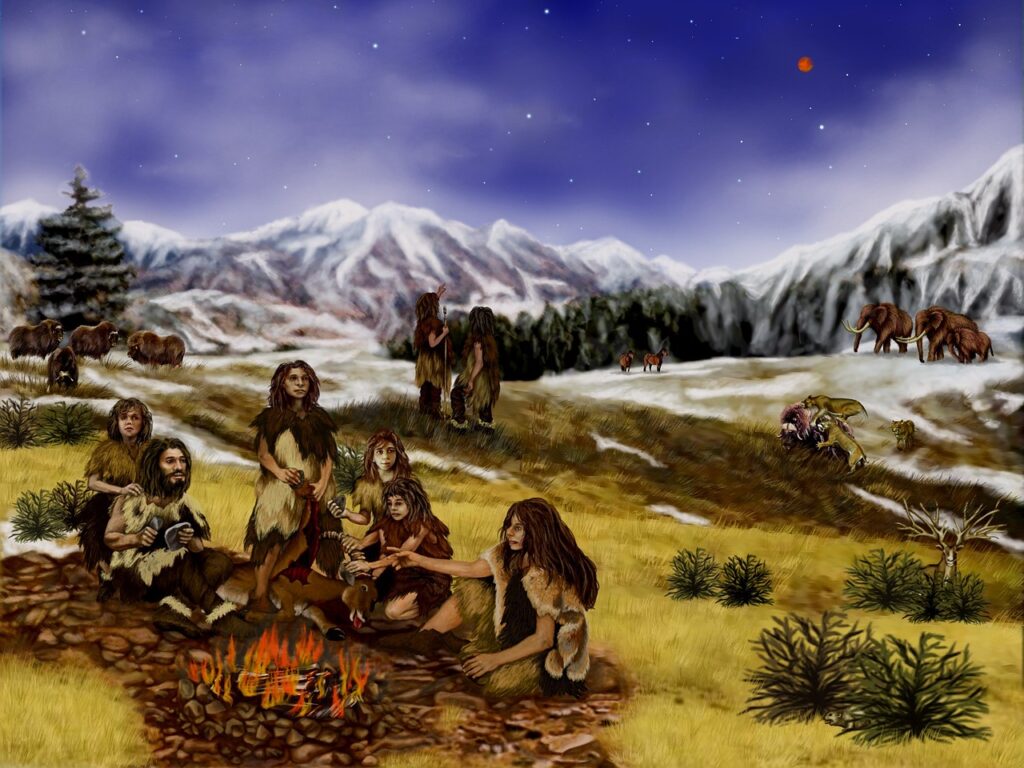Summary of Sapiens
Sapiens is a fantastic Anthropology book. I would rate it a 10/10 rating.
Sapiens: A Brief History of Humankind is a book written by the author Yuval Noah Harari. The book cover ancient human history, including Neanderthals and Homo-Erectus. This book also highlight major human breakthroughs such as the Cognitive Revolution, Agricultural Revolution, and Scientific Revolutions. Harari introduced our closest relatives, the Neanderthals and Homo-erectus, in the first few chapters of the book. Neanderthals and Homo-erectus were similar to us in nature: Neanderthals and Homo-erectus used tools, hunted animals, and lived in groups. Although Neanderthals and Homo-erectus are similar to us in nature, they are both extinct. Anthropologists have hypothesized a few reasons why. Some theories believed that interactions between Homo-Sapiens(modern humans) and Neanderthals results in their extinctions. Anthropologists belive that when Homo-Sapiens migrated to Europe, Homo-Sapiens were able to outcompete the Neanderthals. Neanderthals weren’t able to compete with the Homo-Sapiens innovative ideas, which led to them losing hunting grounds and resources. This eventually led to the extinction of the Neanderthals. Warfare between Homo-Sapiens and Neanderthals is another likely reason for the Neanderthal demise. Another theory hypothesized that some Neanderthals procreated with Homo-Sapiens, while the rest died out. This theory is supported because Neanderthal DNA are found in Modern humans. According to the Smithsonian Natural Museum of Natural History, Neanderthals are known to contribute to 1-4% of the genomes of non-African modern humans. This data supports the argument that Neanderthals and Homo-Sapiens procreated because Neanderthal DNA still exists in modern humans. The relationship between Homo-Sapiens, Neanderthals, and Homo-erectus brings up a point that we are not the only intelligent species.
Changes in brain size over time
Another interesting topic that Sapiens brings up is the change of brain size over time. Our hunter and gatherer/forager ancestors had larger brains compared to the brians of modern humans. One reason that Modern humans have smaller brain sizes is because of the Agricultural Revolution. Before the Agricultural Revolution, to survive, foragers had to understand the layout of the forests, animal behaviors, and weather patterns. Foragers also had to focus on helping their families and avoiding predators. This led to an increased brain size because the Sapien’s brain had to adapt to lots of information. However, once the Agricultural revolution began, humans didn’t require as large brains to survive. The Agricultural Revolution changed the way humans lived. Humans who were once hunters and gatherers/foragers now had an abundance of food. The Agricultural Revolution provided humans with an abundant supply of food. Groups made of hunter and gatherers/foragers now didn’t require as much effort to acquire food. Food was constantly available because agriculture produced enough food for everyone. This abundance of food created a division of labor, which allowed for new jobs to develop. Sapiens could focus on one job at a time, such as farming, tool making, and husbandry. While division of labor was more efficient for society, it decreased the average Sapien’s brain size. Sapiens didn’t have to retain as much information as they used to.

Sources
https://humanorigins.si.edu/evidence/genetics/ancient-dna-and-neanderthals
